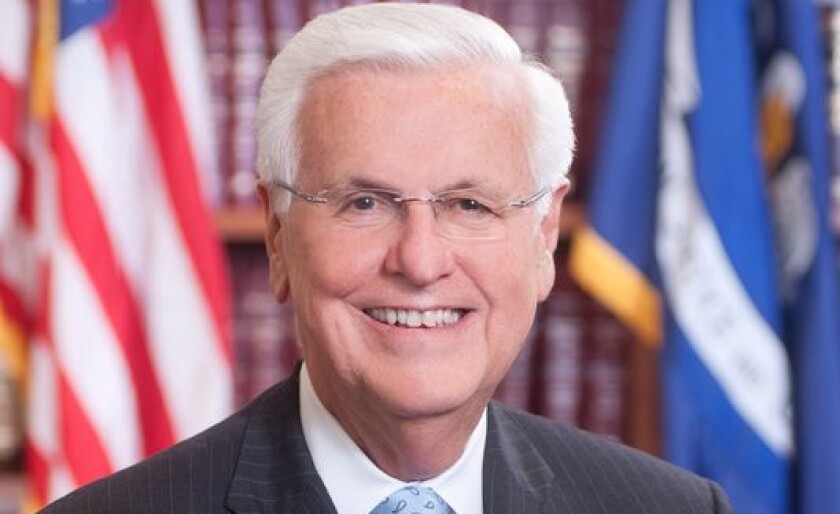
Commissioner Donelon Recaps Successful 2023 Legislative Session for Louisiana’s Insurance Market
July 15, 2023
Hurricane Season in Bayou Country
July 16, 2023By Jillian Elliott, Layne Miller and Taegen Heck, LSU Manship School News Service
When Alex Cook stumbled on a flyer for a local juke joint, he was confused about how he, a member of the Baton Rouge music scene, was unfamiliar with a spot just minutes away in Zachary.
This first visit sparked dozens of features in Cook’s 2012 book, “Louisiana Saturday Night: Looking for a Good Time in South Louisiana’s Juke Joints, Honkey-Tonks and Dancehalls.”
But what he intended to be a travel guide is now a last look at places on a growing list of family-owned Cajun businesses that have closed.
About 40% of the Cajun businesses Cook featured in the bar, restaurant and dancehall guide have closed, and Cajun culture enthusiasts fear that if more businesses close, their culture could become a distant memory rather than a lived experience.
Many visitors to Louisiana meet its culture through the lens of Cajun food and music. As Cajun culture’s commercial preservation disappears, so too does Louisiana’s unique cultural and culinary identity.
“You have to actively preserve it in some way, shape or form,” Cook said, “or the state turns into every other interstate exit with a Walmart and a McDonald’s.”
In a state where tourism is the fifth-largest employer, Louisiana cannot afford to blend in with other Southern states. Herman Fuselier, executive director of the St. Landry Parish Tourism Commission, said Louisiana does not need to mirror other states.
“One of my colleagues with Lafayette Travel has a saying: ‘We don’t have mountains and beaches and things like other places, but we have food, music, culture and festivals like no one else has,’” Fuselier said. “That’s our bread and butter. We live it in a lot of ways, too.”
The causes behind the closures are not all economic. COVID-19, natural disasters and generational turnovers have forced some businesses to close their doors – taking long-standing traditions when they go.
Angelle’s Whiskey River Landing was a lively Henderson dancehall that served as a hub for Cajun music. Patrons even created their own dance, the Whiskey River Shuffle, in honor of the spot. The owners cited “monumental tragedies” when they announced they were closing in 2018, leaving a hole in the Louisiana Cajun music scene.
New owners announced plans in 2022 for Whiskey River Landing’s return, but a fire destroyed the building in January 2023. Stories of lost traditions can be heard around south Louisiana, from the Cafe des Amis restaurant in Breaux Bridge to The Rainbow Inn dancehall in Pierre Part – just two businesses mentioned in Cook’s 2012 book that have shut their doors.
When landmark establishments like these close their doors, the local community mourns the loss. There was a similar reaction when Hackett’s Cajun Kitchen closed in 2020, citing strain from the pandemic. The Lake Charles staple’s Facebook page is a haunting memorial of its steak and gravy plate lunches.

Hackett’s Cajun Kitchen announced its closure via Facebook.
Even a year after Hackett’s closure, customers were still commenting about their hopes of a return. “If somebody brought it back, they’d make some decent money,” one customer said. “I can’t be the only one who misses it.”
“I’ve gone since I was a child,” another local said. “This breaks my heart so much. Y’all will be missed.”
Sunday nights at Whiskey River Landing and Hackett’s plate lunches are just two traditions that have been lost in the last five years, but there are glimmers of hope. Louisiana businesses that are thriving on the national level are examples of how cultural aspects can be preserved.
The Best Stop, which started as a small supermarket in 1986 as a way for Robert Cormier and Lawrence Menard to survive a declining economy, has since flourished into a multi-generational franchise run by Cormier’s children. Now, The Best Stop, based in Scott, sells their father’s Cajun boudin recipe throughout the United States.
Referring to Cajun culture, Best Stop’s Damon Cormier said. “If you hide it, it’ll go away. If the people that knew how to make boudin wouldn’t have shared the recipe or would have just made it at their house, it wouldn’t help grow the culture.”
The Best Stop’s story shows how a family tradition can be preserved and spread through commercial success.

Damon Cormier of The Best Stop was a vendor at the annual Scott Boudin Festival, serving specialty Cajun foods like boudin and cracklins.
Photo credit: Layne Miller/LSU Manship School News Service
Similarly, Myles Bergeron, the second generation at Pointe Coupee Pecan, says his family’s story began with his grandma’s pralines. Her pralines were so loved by Bergeron’s father that they inspired him to plant pecan trees along False River.

Point Coupe Pecan’s products are sold at its store in Port Allen and around the country. Photo credit: Jillian Elliott/LSU Manship School News Service
Today, Pointe Coupee Pecan ships a variety of pecans, from chocolate-covered to roasted, and pecan oils to all 50 states, and the business has plans for expansion in the near future.
While it could be argued that the expansion of these businesses threatens the integrity of the tradition, Bergeron does not see it that way. He says that sharing Louisiana culture is the goal.
“The way we’re growing now, it allows us to showcase that to people in other states all over the country,” he said. “They can get a taste of it.”
Authenticity is a vital aspect of keeping the tradition alive, from how the products are made to the atmosphere of a company. According to Fuselier, the St. Landry Parish tourism official, this is what draws people to consume Cajun culture.
“We have to live it, not just make it a product,” Fuselier said. “We can sell and market it to people, as long as we live it and are true to it.”
Living Cajun culture means participating in its resilient nature. When French Acadians were forced out of Canada by British soldiers, many of them settled in Louisiana and evolved into what we know as Cajuns.
Barry Jean Ancelet, retired professor of Louisiana French folklore from the University of Louisiana at Lafayette, argues that Cajun culture is still evolving, not disappearing.
“There’s an old joke that compares Cajun culture and Louisiana French culture in general to a person,” Ancelet said. “They’ve been declared dead, but just as they try to put him in the coffin he sits up and asks for another beer. We’re not done yet.”
Even if aspects of Cajun culture are at risk, recent closures are the start of a new chapter or a mix of both. Cook still sees the same need to support small businesses that inspired him to write “Louisiana Saturday Night” in 2012.
“A lot of these places are marginal to begin with,” Cook said. “The odds aren’t really with them, but it’s up to people to go.”
There are opportunities to engage with businesses and experience Cajun culture across South Louisiana. Adeline Miller, a 21-year-old member of the young Cajun band Amis du Teche, said it takes commitment from the community to keep it that way.

The Cajun band Amis Du Teche includes Laykin Usie, Adeline Miller, Amelia Powell and Robert Miller. Photo credit: Emily Schneider/EmilyRainePhoto. Courtesy of Adeline Miller
“It’s definitely a choice, whether you go to a festival or you don’t go to a festival, or whether you go to that live band or you don’t go to that live band,” she said. “It’s definitely a choice to help preserve the culture by being someone that just attends events and participates in the culture.”
Miller started playing the fiddle when she was five after attending a jam session at a Breaux Bridge coffee shop, and she spent summers in Nova Scotia learning French. Today, her band sings only in Cajun French. She said that having a “unique culture” like Cajun culture is “so deeply embedded into someone’s essence.”
Miller does not see Cajun culture as exclusive. “You don’t need to go to Canada to learn French.” Instead, she said, “Go to a festival and ask someone to teach you how to dance.”
She sees a culture that wishes to be spread and celebrated.
“Because they will do it.”












